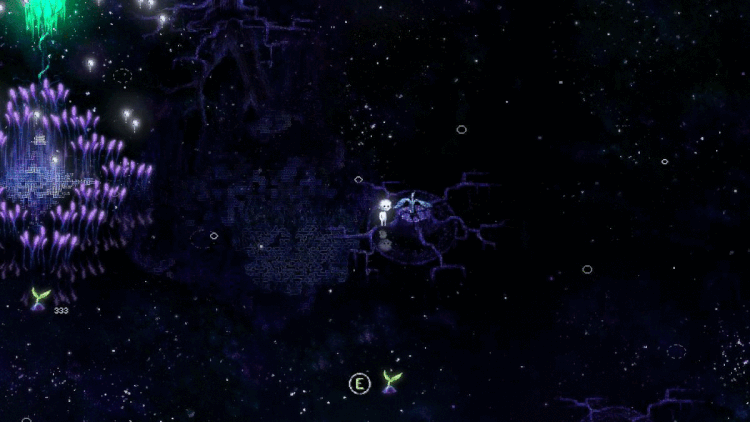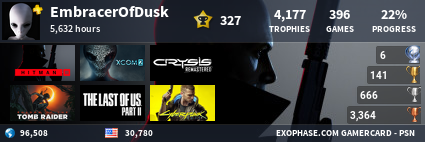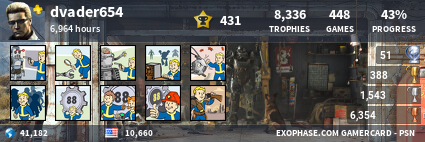Ever read the book, Blink? Here is the blurb from Amazon:
_______________
"In his landmark bestseller The Tipping Point, Malcolm Gladwell redefined how we understand the world around us. Now, in Blink, he revolutionizes the way we understand the world within. Blink is a book about how we think without thinking, about choices that seem to be made in an instant-in the blink of an eye-that actually aren't as simple as they seem. Why are some people brilliant decision makers, while others are consistently inept? Why do some people follow their instincts and win, while others end up stumbling into error? How do our brains really work-in the office, in the classroom, in the kitchen, and in the bedroom? And why are the best decisions often those that are impossible to explain to others? In Blink we meet the psychologist who has learned to predict whether a marriage will last, based on a few minutes of observing a couple; the tennis coach who knows when a player will double-fault before the racket even makes contact with the ball; the antiquities experts who recognize a fake at a glance. Here, too, are great failures of "blink": the election of Warren Harding; "New Coke"; and the shooting of Amadou Diallo by police. Blink reveals that great decision makers aren't those who process the most information or spend the most time deliberating, but those who have perfected the art of "thin-slicing"-filtering the very few factors that matter from an overwhelming number of variables."
_______________
This book describes to a "Tee" how my brain works when it comes to games. I'm not bragging about this, as a matter of fact, it often is problematic for me! The more desperately I want a game, the more likely I'll be tempted to peek, read previews or research about it. The moment I do, the intrigue is lost.
I can't even describe exactly HOW it is I know almost everything about a game before I play it, other than list the commonalities that games share. Yeah, I'll admit it: I've even had dreams where I was playing a game I was anticipating before it comes out, and upon actually playing it, I am near perfect in my subconcious assessment. THIS is the main reason I would hide GG's huge pic posts in the news section... I didn't want anything particular to catch my eye. The moment something would, subconciously I would analyze it and know more about the game than I wanted to and would walk away frustrated with myself!
And, me too, Vader... Xeno and Witcher are the two most recent games I did this with. I knew absolutely nothing about both of them, except for concept art for Xeno and still pics for Witcher. Up until a few days before Witcher's release, I didn't even know it was an Action-RPG! The gameplay system is completely fresh to me, but that is GREAT! To stumble, fumble and have to actually pay attention to Tutorials and concentrate on the Control System and everything... AWESOME! It makes both of them two of the most UNIQUE games I've played in a while!
In a somewhat related topic: If I am looking for a game and I go to the store to find it. I have to keep my head DOWN as I approach the game section. Reason being: Even from afar, somehow my brain will subconciously look for the box art for the game I am looking for, dozens of feet away... I will be able to "know" if the game is there, or not, before I even reach the section! Doesn't matter how big the section is, my brain will filter out everything else and I will know if the game is there or not, without knowingly looking for it. It takes away the simple joy of leisurely browsing through the various shelves of games... It gets to be maddening!
Dvader said:I knew what genre it was but I still h e zero clue what combat is like in witcher. It is exciting. And with the Ice and fire books I am really in the mood for some dark fantasy.
Witcher and SOIAF go TOTALLY hand in hand. Within the first few minutes of the game, you'll be assisting a King to find his "Bastard" children! Coincidence...?
______________
______________
Dvader said:Btw that book sounds really cool. Can he find out why Dolphins quarterbacks all make horrible decisions.
Book is very, very cool. Some incredible insight into how the brain actually works... and, Yo no hablo "SPORTS!" No comprendo! 
I think this is more a problem with developers than us. If genres are incredibly standardised then I don't think we deserve any credit for figuring out how they'll play; so long as we have played a game in their genre before.
"Ever wonder why I don't participate in official topics more?"
I thought it was because you hated us. 

Yeah, I can pretty much judge a book by it's cover these days and not miss out on much.
I do still play games that I think won't appeal to me though, for the purpose of education or just idle curiosity. And sometimes those mainstream blockbusters are actually fun and worth playing.
Generally I like anything that tries something new, but even in the most mediocre games there are gems of ideas that individuals sneak into the game.
Some elaboration:
- I know I won't like Fez because I didn't enjoy Braid and while I thought Portal was enjoyable, it was really more a race to the end for me. I don;t like noodlers, I particularly don't like self-impressed hipsters. So playing a noodler that is by a self-impressed hipster will never happen.
- Even though I did not enjoy Flow, and could not imagine playing Flower, I really want to play Journey because I saw the strange appeal of Tail of the Sun.
These were examples of my abilty to judge a book by it's cover.
On the flipside:
- I was bored silly of GTA after having beaten seven iterations of it. I thought Saint's Row would be a juevenile poor reproduction of said software. Turns out I was completely wrong. So wrong that I played the first, then the second back to back. I was in the first game, sitting in my car, listening to a parody of a right-wing talk show, eating a hamburger and smoking a blunt and went... "this is awesome".
- I would never play Crackdown, or Deadly Premonition based on my prior experience with Incredible Hulk and Silent Hill... turns out I was completely wrong. They provided two of the best experiences of this generation.
Then there are lessor games, that no one should play, like The Suffering or Resevoir Dogs -- but both of those had unique elements that I cherish memories of to this day. You just can't rely on your Spidey sense all the time -- there is a lot of surprises out there.

"sitting in my car, listening to a parody of a right-wing talk show, eating a hamburger and smoking a blunt and went... "this is awesome"."
And you weren't even playing Saint's Row.

I've talked about this many times in the past too.
I also tend to avoid the big threads about major games, and have no interest in creating them myself for one simple reason: I don't want to feel like I've already played the shit out of a game and know every little story detail and know exactly what's going to happen before I've even played the fucking thing.
I know some of you guys love these threads, Dvader for example makes some very nicely laid out Official threads. But if anyone is wondering why I don't participate much more than a few posts here and there, that's why. I want to be surprised when I play something for the 1st time.
Even back in the day of PS1 and N64....I would read up on the big games so much that there wouldn't be much I DIDN'T know, by the time the game released. Many times, even then before I had internet access, the lesser known games that would seemingly come out of nowhere that I knew very little about before reading a few reviews in EGM or whatever other magazine would be the ones I would enjoy playing the most, simply because everything about them was a surprise. There was no pre-set notions of plot, style, or advanced gameplay configurations.

a) Good usability hinges a lot of standardization and convention. For an interface to be usable, it has to be intuitive, and what's most intuitive is what the user is already used to. So in games, you start to see control schemes especially reuse the same layouts, because it will be better received if the user is already comfortable with it. This extends in part into the interface of the world in the game as well. The problem is that these tie in part into the gameplay itself. So it can actual makes things more formulaic. Basically, you already said it - you know what to expect because you've played it before.
b) I like to play everything. That means good, bad, weird, whatever. My interest in gaming at this point often isn't to play the best games and go "this is awesome!" It's to have different experiences with differing levels of quality and find value in that. Largely "official" topics are about detailing as much about the game as possible, largely in story and screenshots. I don't need convincing to play the game, nor am I so excited as to need more information, so the topic serves no purpose but to detract from the experience in the event I do play the game.
---
Tell me to get back to rewriting this site so it's not horrible on mobile



Ever wonder why I don't participate in official topics more? There's a very specific reason. What I am about to describe isn't a supernatural talent or anything of the sort; I believe this to be an actual, factual, subconcious thought process I, and probably others, possess.
It's no secret I've played a lot of games... A. LOT. of GAMES! From the earliest arcade Space Wars to The Witcher 2 (360), I can almost claim I've played them all. Games have gone from simple one-button, one joystick affairs to multiple sticks, multiple buttons and motion control. I've seen games advance from sub-8-bit to current generation power and beyond. I've seen genres come and go; I've seen developers come and go; I've seen publishers come and go. I've played Eastern and Western games, probably with more of an emphasis on Eastern, but I've played a lot of either, nonetheless.
Though the game industry is one full of constant technological advances and changes in the organization of the major players, there are still quite a few things that remain constant. With the exception of motion control, controllers haven't changed that much over the last 20 years. The basic layout of the Dual Shock 3 shares features of the SNES controller, which had features of the original NES pad. Gaming isn't old enough to have advanced that much past the original game developers or publishers either. Sega was around in the days of the Atari 2600, so was Activision. Miyamoto has been a constant. Molyneux has been around for a while. Kojima. The boys from Rare, Retro and Nintendo's various Development houses. Game engines are pretty much shared between systems and platforms pretty commonly. 360 shares a lot with PC development-wise. You'll see Gamebryo, The Quake engine, Aurora and the MT Framework pop-up cross platforms and generations, as well. I'll get to my main point in a minute...
I avoid specific previews and Official Topics of games I am most interested in for a very specific reason. Sure I'll post news and express my excitement, but I won't participate in conversation or even READ some of the news I post. When I look at pictures of games, or watch movies of them... the more I do, the more I KNOW, with a higher than 90% accuracy, EXACTLY how the game will play, for better or for worse. I can almost immediately envision in my head the control scheme, physics, battle engine... you name it! From still pictures I will be able to imagine the game in motion, from a few words of description, I'll be able to imagine myself PLAYING the actual game, with uncanny clarity. The longer a game is previewed before it's actual release, the more and more I will be familiarized with the game, to the point where, day one, it will feel "OLD" to me.
Yeah. Somehow I've developed a Gamer's Instinct. It's not really THAT unusual though. The same people have been developing games (prequels and sequels) on the same engines, using the same controllers year after year after year. PSOne games were made by the same people, using simliar game engines, which use the same basic control layout, as PS3 games and so on. Yeah, there's a lot of buttons on the controllers, but they are pretty much used universally throughout games. "X" typically jumps. "Square" is usually the action Button. "Triangle" usually brings up an Option screen. "O" cancels actions, Use items... You get the idea. There's only so many combinations of how developers can use buttons... Left and Right bumpers on 360 controllers share the same function as L1 and R1 on the DS3... Same goes for the Wii Classic Controller. Triggers on all, well, act as Triggers. After you play so many games that use PhysX development tools, you come to subconciously know what to expect strength and weakness-wise of game performance, lighting effects, frame-rate and so on.
That's why, these days, not even for the sake of avoiding story Spoilers, you won't see me participating in official topics all that much. If something SEEMS unique enough, I may start one, or for sequels or prequels where you already KNOW what to expect I may, but, for the most part, I don't. I've reached the point where I'll watch general excitement, buzz and hype from the sidelines. I'll see how many posts a topic may receive. I'll look at review scores, but not the actual TEXT of the review, simply to avoid knowing EXACTLY what I am getting myself into. I did it with XenoBlade. I did it with The Witcher 2. I haven't given a lot of concious thought to WHY I've been doing this for years now, but the reason is 100% true and accurate. In a market where Call of Duty and Nintendo's frachises rule, there's very little room for originality anymore. When something TRULY is original, where even I can't picture how it may play, well, THAT'S something I get excited for! (TWEWY.) It's an imperfect philosophy, because even original games use common game engines and ideas from the same old developers --BUT-- the less I know about a game from the start, the better.